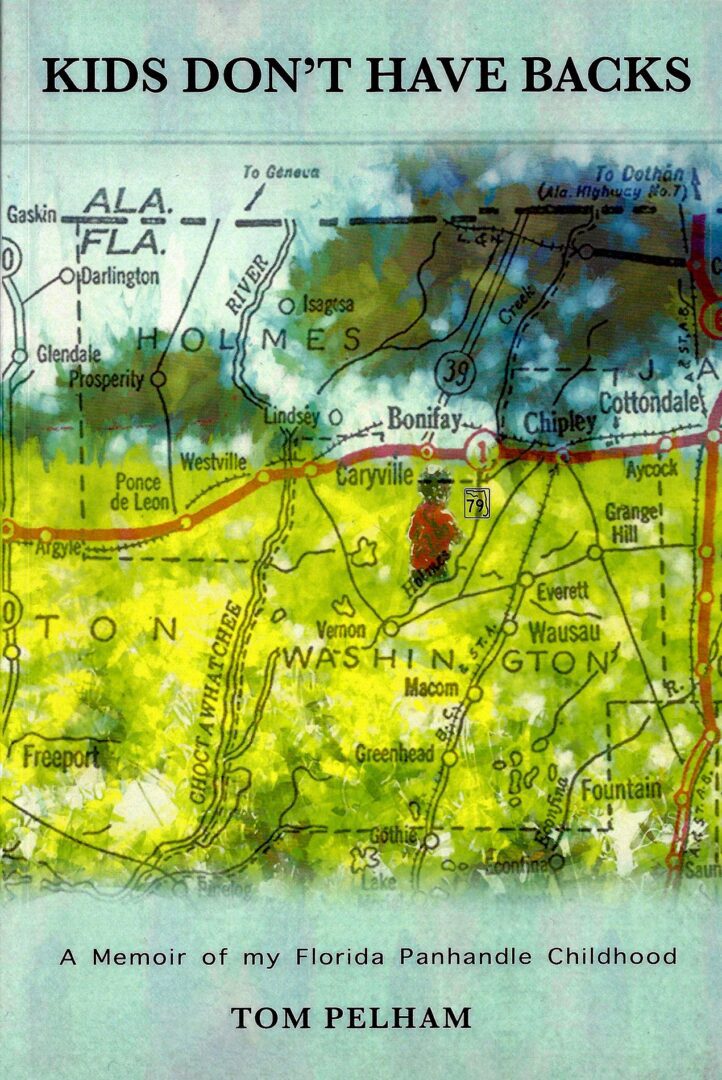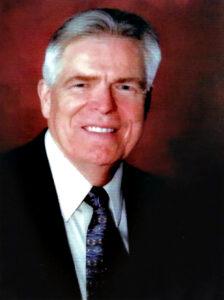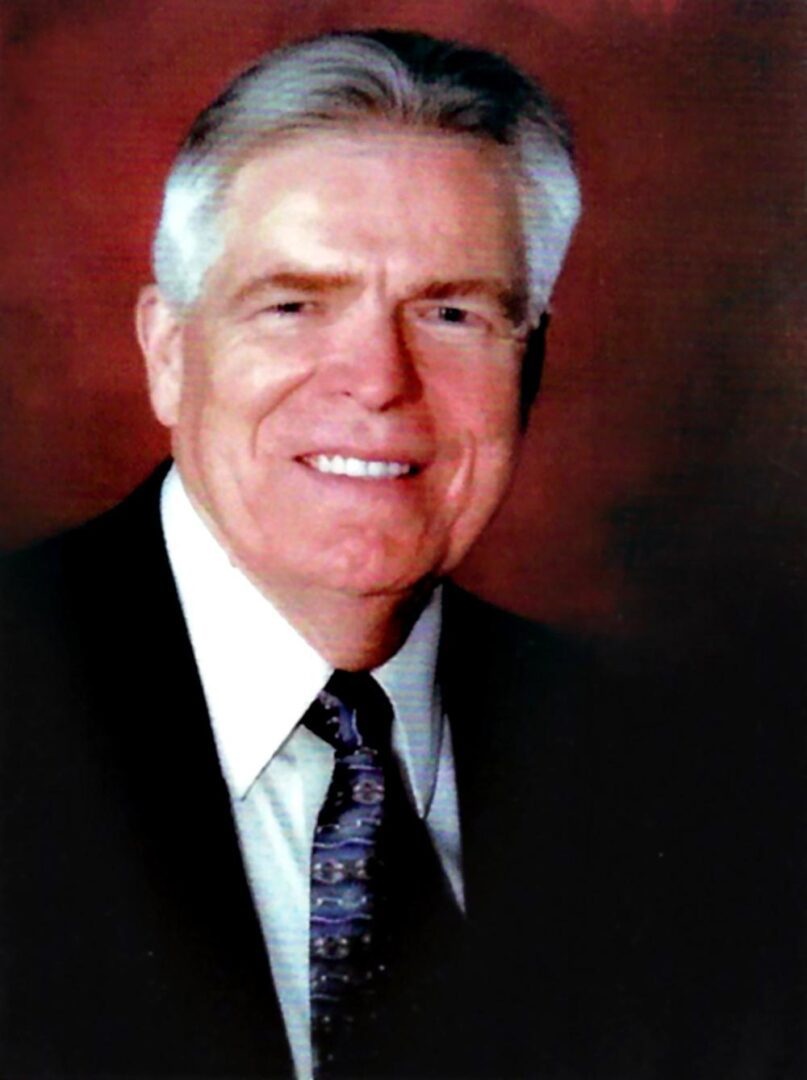RAY REYNOLDS | Guest Columnist
He was Jerry Pelham when he was growing up on his family’s farm just south of Esto. But he became well known and highly respected — and made a major contribution to Florida politics and policy — as Thomas G. Pelham, the Tallahassee lawyer and land use specialist who served two different terms, under two different governors, as secretary of the state’s Department of Community Affairs.
In his recent memoir, “Kids Don’t Have Backs,†he tells the story of his early years on the old Blackburn place — his grandparents’ farm, later taken over and expanded by his parents, Roy and Louise Blackburn Pelham.
“The farm was located on Florida Highway 79 in a rural area known as the Holland Cross Roads farming community, just two miles south of the Alabama-Florida state line,†he writes, adding that when his grandparents moved to Holmes County from Georgia in 1918: “The county was sparsely populated and living conditions were primitive. There was no electricity, and therefore no electric lights, indoor plumbing, running water, sanitary facilities or air conditioning. Tractors and other modern farm equipment were not generally available or affordable, so farming was mostly conducted with mules and hard manual labor.â€

“The farm was a year-round, labor intensive, physically demanding enterprise,†he writes, “that over time involved the efforts of our entire family, including the children, who frequently worked like adults.â€
Pelham paints a picture of unrelenting, backbreaking work: milking cows, feeding hogs, chopping and picking cotton, pulling corn, stacking peanuts, building and rebuilding fences. It’s a life that will be familiar to nearly everybody who grew up in Holmes County.
“Hard work never hurt anybody,†was his father’s frequent refrain.
The title comes from a memory of a hot summer day in the cotton patch when he stretched his aching back and then dropped to his knees and started crawling.
“Hey, boy, get off your knees and get to pickin’ cotton,†his daddy commanded. “But my back hurts,†he replied as he slowly got to his feet. “Kids don’t have backs,†his daddy declared.
Neither did every farmboy have a grandmother down the road who subscribed by mail to the Atlanta Journal-Constitution, which she passed along to her grandson. The Atlanta papers were especially strong in their coverage of school integration in the wake of the Brown v. Board of Education ruling in 1954, stirring his awakening awareness of the U.S. Supreme Court and the rule of law. His learning was helped along by some outstanding teachers at Holmes County High School — still segregated at the time — and especially Miss Lynelle Vanlandingham, who taught ninth grade civics.
He writes: “Miss Vann’s discussions of the structure and functions of American national and state governments, the roles of the three branches of government, and our democratic values, sparked my lifelong interest in government and politics. A legendary disciplinarian, Miss Vann could silence a rowdy class simply by pointing her finger and arching an eyebrow.â€
Not all of the enlightenment took place in the classroom.
He writes: “The school bus — bright yellow with big black letters, just like today — picked up all of the students who lived on Highway 79 between Esto to the north of our farm and Bonifay to the south. But it also made two long loops over unpaved red clay side roads to pick up students who lived off the main highway. Riding the school bus was an education in itself. Filled with 30 or more boys and girls ranging from first graders to high school seniors, the bus contained a combustible mix of high energy, youthful exuberance and raging hormones. Boys harassing girls and girls flirting with boys, big boys picking on little boys, profanity and sexual innuendo, spit balls and flying paper airplanes, some of them aimed at the bus driver. On a few occasions the playfulness turned ugly and fights broke out.â€
Pelham quickly learned to love school. “Over the years,†he writes. “It became easier and easier for me to get ready to catch the school bus every morning.â€
By the time he was a senior in 1961, Pelham was president of the student council and valedictorian of his graduating class. He helped organize and raise funds for an eye-opening senior class train trip to Washington, D.C., and New York City.
“Our trip gave me a lot to think about on the train ride home,†he writes. “Seeing the exciting world that lay beyond the narrow boundaries of my life on the farm strengthened my desire to go to college. That still seemed to be an impossible dream, but I was determined to find a way to get there.â€
He came home to the farm and announced his intentions. His mother, who had also been the valedictorian of her class at Holmes County High, was supportive. But not his father, at least not at first. “Who is going to help me gather these crops and take care of the farm animals and all of the work around here?†he asked.

By then Roy Pelham’s oldest son had a back and a backbone. He found a way to make it happen, getting degrees from Chipola Junior College, Florida State University and Duke University, and later law degrees from Florida State and Harvard Law School. When he died on February 21, 2023, after a long battle with Parkinson’s Disease, during which he wrote his memoir, he was eulogized by the state’s foremost political writer, Lucy Morgan, as a legal lion. She wrote: “No single person in our history did more to protect Florida’s fragile environment and manage growth.â€
Tom Pelham’s “Kids Don’t Have Backs: A Memoir of My Florida Panhandle Childhood,†is available from Amazon.



